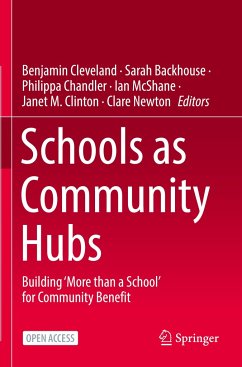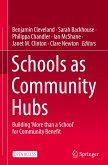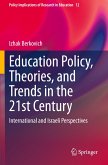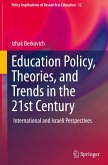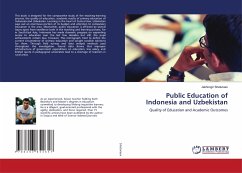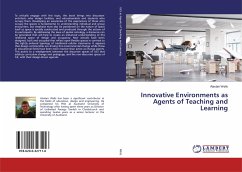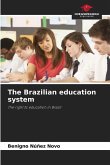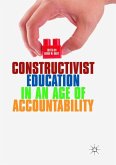Schools as Community Hubs
Building 'More than a School' for Community Benefit
Herausgegeben:Cleveland, Benjamin; Backhouse, Sarah; Chandler, Philippa; McShane, Ian; Clinton, Janet M.; Newton, Clare
Schools as Community Hubs
Building 'More than a School' for Community Benefit
Herausgegeben:Cleveland, Benjamin; Backhouse, Sarah; Chandler, Philippa; McShane, Ian; Clinton, Janet M.; Newton, Clare
- Broschiertes Buch
- Merkliste
- Auf die Merkliste
- Bewerten Bewerten
- Teilen
- Produkt teilen
- Produkterinnerung
- Produkterinnerung
This open access book brings together research on the planning, design, governance and management of schools as community hubs-places that support the development of better-connected, more highly integrated, and more resilient communities with education at the centre. It explores opportunities and difficulties associated with bringing schools and communities closer together, with a focus on the facilities needed to accommodate shared experiences that generate social capital and deliver reciprocal benefits. This book discusses the expanded roles of schools, and investigates how schools may…mehr
Andere Kunden interessierten sich auch für
![Schools as Community Hubs Schools as Community Hubs]() Schools as Community Hubs38,99 €
Schools as Community Hubs38,99 €![Education Policy, Theories, and Trends in the 21st Century Education Policy, Theories, and Trends in the 21st Century]() Izhak BerkovichEducation Policy, Theories, and Trends in the 21st Century128,39 €
Izhak BerkovichEducation Policy, Theories, and Trends in the 21st Century128,39 €![Education Policy, Theories, and Trends in the 21st Century Education Policy, Theories, and Trends in the 21st Century]() Izhak BerkovichEducation Policy, Theories, and Trends in the 21st Century90,99 €
Izhak BerkovichEducation Policy, Theories, and Trends in the 21st Century90,99 €![Public Education of Indonesia and Uzbekistan Public Education of Indonesia and Uzbekistan]() Jakhongir ShaturaevPublic Education of Indonesia and Uzbekistan47,99 €
Jakhongir ShaturaevPublic Education of Indonesia and Uzbekistan47,99 €![Innovative Environments as Agents of Teaching and Learning Innovative Environments as Agents of Teaching and Learning]() Alastair WellsInnovative Environments as Agents of Teaching and Learning50,99 €
Alastair WellsInnovative Environments as Agents of Teaching and Learning50,99 €![The Brazilian education system The Brazilian education system]() Benigno Núñez NovoThe Brazilian education system33,99 €
Benigno Núñez NovoThe Brazilian education system33,99 €![Constructivist Education in an Age of Accountability Constructivist Education in an Age of Accountability]() Constructivist Education in an Age of Accountability19,99 €
Constructivist Education in an Age of Accountability19,99 €-
-
-
This open access book brings together research on the planning, design, governance and management of schools as community hubs-places that support the development of better-connected, more highly integrated, and more resilient communities with education at the centre. It explores opportunities and difficulties associated with bringing schools and communities closer together, with a focus on the facilities needed to accommodate shared experiences that generate social capital and deliver reciprocal benefits.
This book discusses the expanded roles of schools, and investigates how schools may offer more to their communities-historically, currently and into the future-with respect to the role of the built environment in situating community activities and services.
Organised around four sections, it showcases important areas of development in the field via an interdisciplinary approach, which weaves together empirical research withtheoretical insights and practical examples. Thisbook not only highlights the challenges associated with the development of schools as community hubs but offers evidence-based insights into how to overcome such hurdles to develop community-facing schools into the future.
This book discusses the expanded roles of schools, and investigates how schools may offer more to their communities-historically, currently and into the future-with respect to the role of the built environment in situating community activities and services.
Organised around four sections, it showcases important areas of development in the field via an interdisciplinary approach, which weaves together empirical research withtheoretical insights and practical examples. Thisbook not only highlights the challenges associated with the development of schools as community hubs but offers evidence-based insights into how to overcome such hurdles to develop community-facing schools into the future.
Produktdetails
- Produktdetails
- Verlag: Springer / Springer Nature Singapore / Springer, Berlin / The University of Melbourne / book editor
- Artikelnr. des Verlages: 978-981-19-9974-1
- 1st ed. 2023
- Seitenzahl: 348
- Erscheinungstermin: 20. April 2023
- Englisch
- Abmessung: 235mm x 155mm x 19mm
- Gewicht: 528g
- ISBN-13: 9789811999741
- ISBN-10: 9811999740
- Artikelnr.: 67038033
- Herstellerkennzeichnung Die Herstellerinformationen sind derzeit nicht verfügbar.
- Verlag: Springer / Springer Nature Singapore / Springer, Berlin / The University of Melbourne / book editor
- Artikelnr. des Verlages: 978-981-19-9974-1
- 1st ed. 2023
- Seitenzahl: 348
- Erscheinungstermin: 20. April 2023
- Englisch
- Abmessung: 235mm x 155mm x 19mm
- Gewicht: 528g
- ISBN-13: 9789811999741
- ISBN-10: 9811999740
- Artikelnr.: 67038033
- Herstellerkennzeichnung Die Herstellerinformationen sind derzeit nicht verfügbar.
Associate Professor Benjamin Cleveland is Associate Professor in Learning Environments in the Faculty of Architecture, Building and Planning at the University of Melbourne, Australia, where he is Co-Director of the Learning Environments Applied Research Network (LEaRN). He is the Lead Chief Investigator of the three-year Australian Research Council (ARC) Linkage project, 'Building Connections: Schools as Community Hubs'. He has acted as Chief Investigator for the ARC Linkage Project, 'Innovative Learning Environments + Teacher Change' (ILETC), led a review of the Victorian School Building Authority's Standard Entitlements Framework and led a three-year programme of learning environment evaluation for Catholic Education Melbourne and Parramatta. His research was recognised with the Research Excellence Award by the Faculty of Architecture, Building & Planning, University of Melbourne, in 2019. He currently supervises more than ten Ph.D. candidates in the field of learning environments research. He is past Chair of Learning Environments Australasia-Victoria Chapter and has consulted on school design projects in States and Territories across Australia and New Zealand. Ms. Sarah Backhouse is a Registered Architect with more than 20 years' of experience facilitating future-focused conversations about designing environments for learning, working and living. Her practice has focused on helping unlock people's potential by creating wellbeing supportive spaces and places. She has consulted on projects as diverse as Global Workplace Guidelines for Microsoft and User Briefs for more than 20 Universities in the United Kingdom, Europe and Australia. As a member of the Learning Environments Applied Research Network (LEaRN), her research interests and expertise span the design of learning environments, design for wellbeing, strategic and architectural briefing, and wellbeing science. She has a long-held interest in understanding how architects conceptualise wellbeing for the benefit of themselves, their workplaces and the built environment and is currently undertaking a Ph.D. to examine the interconnection of these dimensions. Dr. Philippa Chandler is a Research Fellow in the Faculty of Architecture, Building and Planning at the University of Melbourne, Australia, where she works with the Learning Environments Applied Research Network (LEaRN). Her current research focus is the Australian Research Council Linkage project 'Building Connections: Schools as Community Hubs', which investigates how school infrastructure can be better used by the broader community. She is passionate about conducting qualitative research that examines how community groups interact with their everyday environments. Situated in cultural geography, her Ph.D. thesis explored place attachment among returning holidaymakers in Western Australia's remote Ningaloo region. Her arts and culture journalism has appeared in Guardian Australia, The Age and Sydney Morning Herald. Associate Professor Ian McShane is Senior Research Fellow at the Centre for Urban Research, RMIT University, Australia. His research focuses on social and community infrastructure, especially education, recreation and cultural facilities, and digital infrastructure such as public Wi-Fi networks. His research on multi-functional, multi-purpose and co-located settings, such as community hubs, critically examines the challenges and opportunities of multi-level governance, service coordination and place-based initiatives. He also researches digital innovation and inclusion, and he oversaw Australia's first large-scale study of local government investment in public Wi-Fi.. He was Deputy Director of the RMIT Centre for Urban Research from 2014-2020. His research and teaching are informed by public sector management experience, and he has consulted with government and community sectors. Professor Janet Clinton is the Director of the Teacher and Teaching Effectiveness Research Hub at Melbourne Graduate School of Education (MGSE), Australia. Until recently, she was also Deputy Dean of MGSE. She has wide national and international experience as an Evaluator and Educator with an extensive publication record, teaching several post-graduate subjects in the discipline of evaluation and supervising several Ph.D. students in the areas of evaluation and education. Janet has worked in Australia, New Zealand, and the United States, and has been a Principal Investigator on many large complex evaluations and research projects. Recently, she was the Principal Evaluator for the Australian Professional Standards for Teaching. She currently leads the Visible Classroom initiative, directs the Teacher Capability Assessment Tool project, and is the Lead Investigator for developing an Australian Teacher Performance Assessment. She is a Chief Investigator of the 'Building Connections: Schools as Community Hubs' ARC Linkage project. She has led over a hundred national and international evaluation projects across multiple disciplines, particularly health and education. Her major interest in programme evaluation is the development of evaluation theory, mixed methodologies and data analytics. Her current evaluation work focuses on developing evaluation frameworks and implementation protocols, as well as using evaluation as a vehicle for change and building capacity through extensive stakeholder engagement. Associate Professor Clare Newton is an Honorary Principal Fellow in the Faculty of Architecture, Building and Planning, University of Melbourne, Australia. She is an Architect and Doctor of Education and was a Founding Member of the Learning Environments Applied Research Network (LEaRN). She was first-named Chief Investigator on two Australian Research Council (ARC) Linkage Projects, 'Smart Green Schools' and 'Future Proofing Schools'. As a Chief Investigator,she won three further ARC Linkage Projects on school design. Future Proofing Schools facilitated the establishment of PrefabAUS, Australia's first peak body for prefabrication. She has led or participated in fourteen additional multidisciplinary research grants. She has won eleven competitive Learning and Teaching grants and has undertaken leadership roles as Chair of the Accreditation Panel for the Commonwealth Association of Architects (CAA), elected Council Member for the Australian Institute of Architects (AIA), Director of the Bachelor of Environments with over 2,000 students, and was appointed by the Minister for Planning as Board Member for the Architects Registration Board of Victoria (ARBV). She is Immediate Past Chair of the Hallmark Ageing Research Initiative (HARI) and taught Design for Ageing within the Master of Ageing. She has been Competition Advisor for the AIA and a jury member for many competitions and selection panels. She received the Victorian NAWIC Award of Excellence for Innovation in Construction and was awarded the AIA Sisalation Prize.
Part 1: Scene-setting.- Renewed aspirations for schools as community hubs.- A framework for building schools as community hubs: If it were simpler would it happen everywhere?- Part 2: Partnering.- School-community collaboration: Insights from two decades of partnership development.- Brokering school-community partnerships: Cross-sector advocacy and hard work.- Rear Vision: Lessons from community education in the 80s.- Nature as partner: How school communities benefit from ecological connections.- Part 3: Planning.- School and community infrastructure networks: What might these look like?- Valuing urban schools as social infrastructure.- Connecting schools with local communities through walkable urban design.- Safe yet welcoming: alternative design strategies for secure schools.- Schools as 'Sacred Enclaves' or 'Community Hubs'? South Korean experiences.- Part 4: Designing.- Progressive pedagogies and community connections: Forty years of urban planning and architectural design.- Designing for the needs of a thriving school community hub.- Planning Doveton College: Holistic vision, innovative design and paving the way for others.- Vertical schools as community hubs.- Developing a school and community learning hub: A case study from regional Australia.- Part 5: Enabling.- Emotional labour and developing schools as community hubs.- Policy for schools as community hubs: Insights into a fragmented environment.- Theorising the development, implementation and sustainability of schools as community hubs.- An evaluation framework for schools as community hubs.- The role of evaluative thinking in the success of schools as community hubs.- Are schools as community hubs worth it?
Part 1: Scene-setting.- Renewed aspirations for schools as community hubs.- A framework for building schools as community hubs: If it were simpler would it happen everywhere?- Part 2: Partnering.- School-community collaboration: Insights from two decades of partnership development.- Brokering school-community partnerships: Cross-sector advocacy and hard work.- Rear Vision: Lessons from community education in the 80s.- Nature as partner: How school communities benefit from ecological connections.- Part 3: Planning.- School and community infrastructure networks: What might these look like?- Valuing urban schools as social infrastructure.- Connecting schools with local communities through walkable urban design.- Safe yet welcoming: alternative design strategies for secure schools.- Schools as 'Sacred Enclaves' or 'Community Hubs'? South Korean experiences.- Part 4: Designing.- Progressive pedagogies and community connections: Forty years of urban planning and architectural design.- Designing for the needs of a thriving school community hub.- Planning Doveton College: Holistic vision, innovative design and paving the way for others.- Vertical schools as community hubs.- Developing a school and community learning hub: A case study from regional Australia.- Part 5: Enabling.- Emotional labour and developing schools as community hubs.- Policy for schools as community hubs: Insights into a fragmented environment.- Theorising the development, implementation and sustainability of schools as community hubs.- An evaluation framework for schools as community hubs.- The role of evaluative thinking in the success of schools as community hubs.- Are schools as community hubs worth it?

